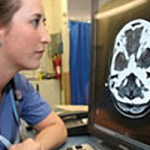Shop
Showing 37–45 of 91 results
-

Dementia Program for Enrolled Nurses – Session 9
$55.00 incl. GST (AU$) -

Dementia Program for Enrolled Nurses
$55.00 – $440.00 incl. GST (AU$)2015 Update (a clinically focused program)
-

Dementia Program for Registered Nurses – Full Course
$880.00 (AU$) -

Dementia Program for Registered Nurses – Full Course, No Assignments
$660.00 (AU$) -

Dementia Program for Registered Nurses
$55.00 – $880.00 incl. GST (AU$)2015 Update (a clinically focused program)
-

Depression in the Elderly
$55.00 incl. GST (AU$) -

Documentation, Documentation, Documentation
$55.00 incl. GST (AU$) -

Drugs & The Elderly Webinar
$33.00 – $330.00 incl. GST (AU$) -

Drugs in the Elderly Update – Full Course
$330.00 incl. GST (AU$)
